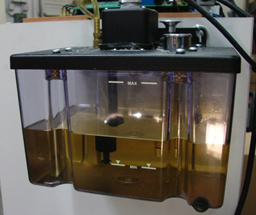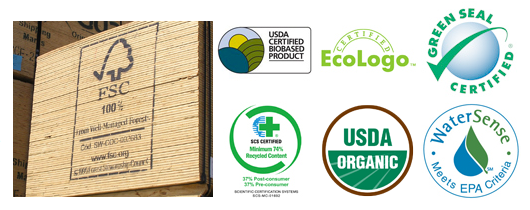
A significant portion of the environmental impacts made by any operation are related to the products and materials they purchase. In fact, for most manufactured products, source materials represent the largest investment in energy and greenhouse gas emissions of the production process1 (including materials, manufacture, and transport). Sustainable acquisition is one way an organization, especially a large one, can take big steps to reduce its environmental impacts.
Sandia is aware of this significant impact and also of our opportunity, as a large-volume purchaser, to reduce the impacts. Using guidance provided by the Department of Energy and other federal entities, Sandia works to include these considerations in the contracted purchase of a wide variety of products and materials. Although a universal approach for identifying the most environmentally preferable products continues to evolve, Sandia’s Materials Sustainability Program, in collaboration with procurement departments, evaluates products and materials, and uses contractual agreements to obtain better products.

Using recycled content in products designated by the Environmental Protection Agency’s Comprehensive Procurement Guidelines is one way to use less virgin timber, electricity and water, and move toward a market that encourages recycling instead of a “throw-away” society. Sandia requires recycled content products in office supply, custodial, construction, fleet services, and several other contracts. In 2022, Sandia launched an online platform for our subcontractors to report on their use of environmentally friendly products. The aggregated data is validated and submitted on federally required reports.
Using Biobased products can reduce fossil fuel consumption and also have the potential to benefit U.S. producers, local job markets, and the American economy as a whole. For many applications, products conventionally produced from petroleum derived compounds, can be formulated using vegetable or seed oils. Any non-food product made from renewable plant, animal, or marine material is classified as “biobased” according to the U.S. Department of Agriculture. The USDA has created a program to assist federal buyers with locating these products called BioPreferred. Biobased products usage is steadily in use at Sandia, particularly in construction projects.

As with Electronic Product Environmental Assessment Tool (EPEAT) for computing equipment, several respected multi-attribute “green labels” can be used to identify products with a lower environmental burden. It remains difficult to separate the meaningful cross-industry green labels from labels falsely claiming environmental superiority. However, established green label leaders like Green Seal, UL’s GreenGuard, and EcoLogo, and EPA’s Safer Choice are offered preference in Sandia procurement.
“Avoid” is one of the greenest choices in Acquisition. For example, avoiding the purchase of non-recyclable binders, in tandem with avoiding the printing of documents in favor of a variety of means of electronic file storage, can avoid literally tons of solid waste disposal for a workplace.
1. Oregon Department of Environmental Quality, September, 2011